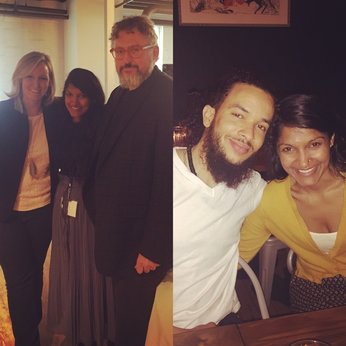|
What if students had more autonomy in designing their education after high school? Would we have more students engaging in problems and questions they cared about, and in turn finding more purpose in their careers?? I’ve been dwelling on these questions for a while now, ever since I started teaching in higher ed in 2011. Part of the solution: Individualized Major Programs. These programs vary broadly in their implementation, philosophies, and student profiles, but do share a sense of catering the undergrad and college experience to the needs and interests of individual students. Tyler Barley for example, was able to explore his deep interest in African American studies, through the combined lenses of history, anthropology, and political science at RiT’s School of Individualized Study (see Tyler's story here). Through a Custom Design major program at Philadelphia’s Drexel University, Collin Cavote went from living off the grid to designing Biome, a company that makes nature more accessible in urban settings. The company designs “breathing walls” — natural art installations that also purify the air (read more about Collin’s story here). Hearing these stories, and meeting several other students, faculty, and administrators at the Individualized Major Programs conference in Rochester this Spring inspired me to encourage more of this individualized thinking and engaged inquiry into my own teaching practice and course design work. It also made me realize how our connection to broader societal challenges can be considered much earlier on in our careers and lives, in uniquely tailored ways. And these programs need not be limited to liberal arts majors. Broadly speaking, these (Individualized Major) programs enable students to draw new and innovative connections across fields of knowledge, develop individual learning objectives and outcomes, synthesize cross-disciplinary research methodologies, and, generally, work against the institutional dictates of strictly disciplinary learning. Of course, these programs are not a fit for every student.
Student panelists spoke of the need for motivation in their majors, and that for an inspired degree to take shape, the “I don’t know what I want to do” mindset would not be a good fit. That said, other students spoke of how having time early on in their degrees for exploration allowed them to clarify their interests before committing to a capstone project or problem they would address in their senior years. I love the idea of bringing more individualized learning into, and outside of, every classroom, and am excited to learn more about this space!
0 Comments
|
Categories
All
AuthorA passionate educator.. on a quest for a schooling model to love! Archives
August 2017
|


 RSS Feed
RSS Feed
